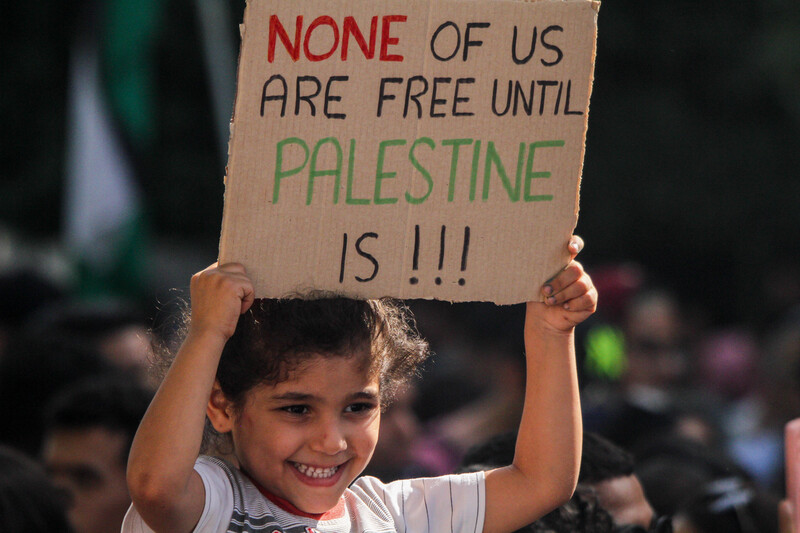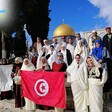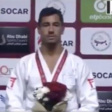The Electronic Intifada 20 December 2023

Young Arabs have grown up with the denial of Palestinian rights. Here a child takes part in a protest for Gaza outside the French embassy in Tunis on 19 October.
IMAGESLIVE via ZUMA Press WireLike any Arab child raised in an Arab country, the Palestine cause was an integral part of my childhood.
Battered landscapes, images of buildings collapsing after being bombed, big, scary tanks, children’s cries, the laments of mothers holding their dead children in their arms and men mourning – we saw it all.
I’ve witnessed these scenes regularly. Regularly enough that they have left an indelible mark on my memory.
Every time I see scenes of war, whether in movies or on the news, it triggers my brain.
As a child, I could discern the atmosphere of collective despair and resignation.
Adults were tense and kept binge watching the news. My child’s brain was most intrigued by all that was happening and I kept asking questions about what was going on and who was killing all these people.
Adults were stretched too tight to answer me, and only my grandmother responded with what she heard on TV and the radio: “It’s the Israelis and Americans, my daughter, may God destroy them.”
When I got a bit older and was able to follow political conversations, I’d often hear adults in my family say things like: “Arab lives matter as much as animals’ lives to the West,” or “they want to lessen the number of Arabs” and other things.
So I grew up with the duality of “them vs us” that’s most predominant in the collective psyche of Arabs.
At the same time, coming from an upper-middle-class family, my parents did their best to maximize my chances of getting accepted by a Western university, by starting to teach me French at 3 and English at 5. They also enrolled me in a public French school in Tunisia, to facilitate access to Western universities.
The big dream
My parents often told me there’s a “better life” in Europe and the USA, where my rights would be guaranteed and I would be well paid. Emigrating to the West became the “big dream” for me, and whenever a member of my family or one of my older friends, who went to study or work abroad, came back for vacation, I and other people would reunite around them, to ask them about this “perfect world.”
As teenagers, we were quickly disappointed with the lack of enthusiasm of the expats, who’d tell us “It’s okay, but it’s better than here,” or “It’s fine, but you’ll always be an Arab for them, no matter how long you live in their country.”
These words always came as a surprise to our idealistic selves, who would bear anything including long lines in front of visa centers or unjustified rejected visa applications, to go to “the other side.”
If we didn’t understand what our elders meant, it’s now that we’re starting to get their point, especially in the current context of the war in Palestine, where pro-Palestine protesters are teargassed in France or arrested in Germany.
Such practices can only frustrate Arabs living in the Western world since they find themselves deprived of their right to express their grief and their anger. This can only make them feel like second-class citizens, and thus nurture feelings of resentment towards their more privileged neighbors, who have more rights than them.
Amid this chaos, I couldn’t help but ask myself about this imbalanced relationship we – Arabs or Africans – have with the Western world and its institutions. While their hospitals and companies brim with our most skilled workers, their embassies still act as if they are doing us a favor when we apply for visas, by charging us high fees and making us go through humiliating procedures.
At the end of the day, what matters most is which side needs the other more.
Tharwa Boulifi is a Tunisian writer.


